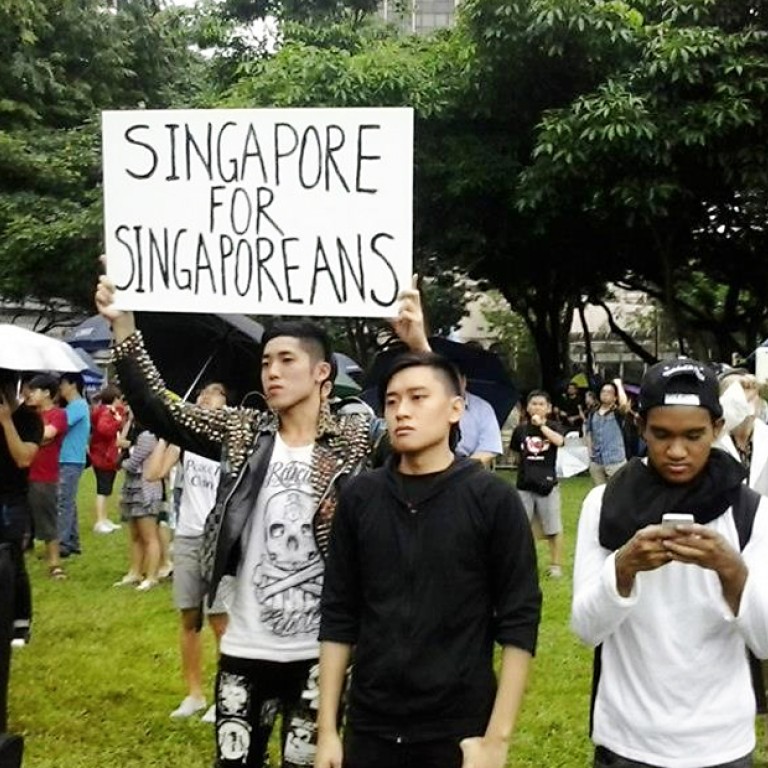
Celebration by Filipinos sparks wave of anti-immigrant abuse in Singapore
Planned celebration by Filipinos sparks outpouring of nationalistic abuse, a sign of rising tensions over city state's pro-immigration policies
An abusive campaign by Singaporeans opposing a planned Philippine independence celebration has shone a light on anti-foreigner sentiment in the citystate, home to large numbers of guest workers accused of taking jobs from locals and causing overcrowding.

It became a hotly debated topic after anonymously-run local websites and Facebook pages heaped racial abuse on Filipinos and attacked the choice of venue, saying it should be held on the Philippine embassy grounds instead of in a public area.
Prime Minister Lee Hsien Loong condemned the "thuggish behaviour" of people who harassed the organisers of the Philippine event, calling them a "disgrace to Singapore".
A spokeswoman for organisers Pilipino Independence Day Council Singapore (PIDCS) referred to a previous statement which said they were "heartened, grateful, and happy to receive support from Singaporeans".
She declined to comment on whether the event would go ahead as planned on June 8. Police say they have not yet received a permit application for it.
The Philippine embassy in Singapore posted an advisory on its website urging Filipino residents to exercise caution.
"Participating in these online debates will only inflame the situation and may result in untoward incidents, possible loss of employment and investigation by authorities," it said.
Eugene Tan, an associate law professor at the Singapore Management University, said that the online backlash was a "visceral overreaction and it does not reflect the sentiments of the average Singaporean.
"The anger probably stems from unhappiness with the government's immigration policy," said Tan, a social commentator and appointed lawmaker.
Singapore's low birth rate prompted the government to grant an average of 18,500 new citizenships every year between 2008 to 2012 - helping the population surge by 30 per cent since 2004 to 5.4 million last year.
Out of a foreign population of 1.55 million, about 172,700 Filipinos work in Singapore, according to official Philippine data.
But many Singaporean citizens - who now make up only 60 per cent of the population - see the new arrivals as competition for housing, schools and space in a city whose per capita income of US$54,500 masks one of the biggest income gaps in the world.
Critics posting on ultra-nationalist blog The Real Singapore as well as on various Facebook pages say the Filipino event is illustrative of foreigners overstepping their welcome.
"The government has sold us out by bringing in foreigners to replace us at the job front and new homes are specially build to house them. We can't allow them any ground any more else we become second-class citizens in our own country," wrote Gilbert Goh in a piece on the blog.
Goh, an employment counsellor, is regarded as the most vocal critic of immigration policies and has led rallies at a designated protest park. Another is scheduled for May 1.
Tan said the government was concerned that such sentiment could affect the city's reputation for being one of the world's most open economies.
"For a country where openness to trade, investments, ideas, and people is its life-blood, such conduct if it persists and grows will harm Singapore's long-term interests," Tan said.
